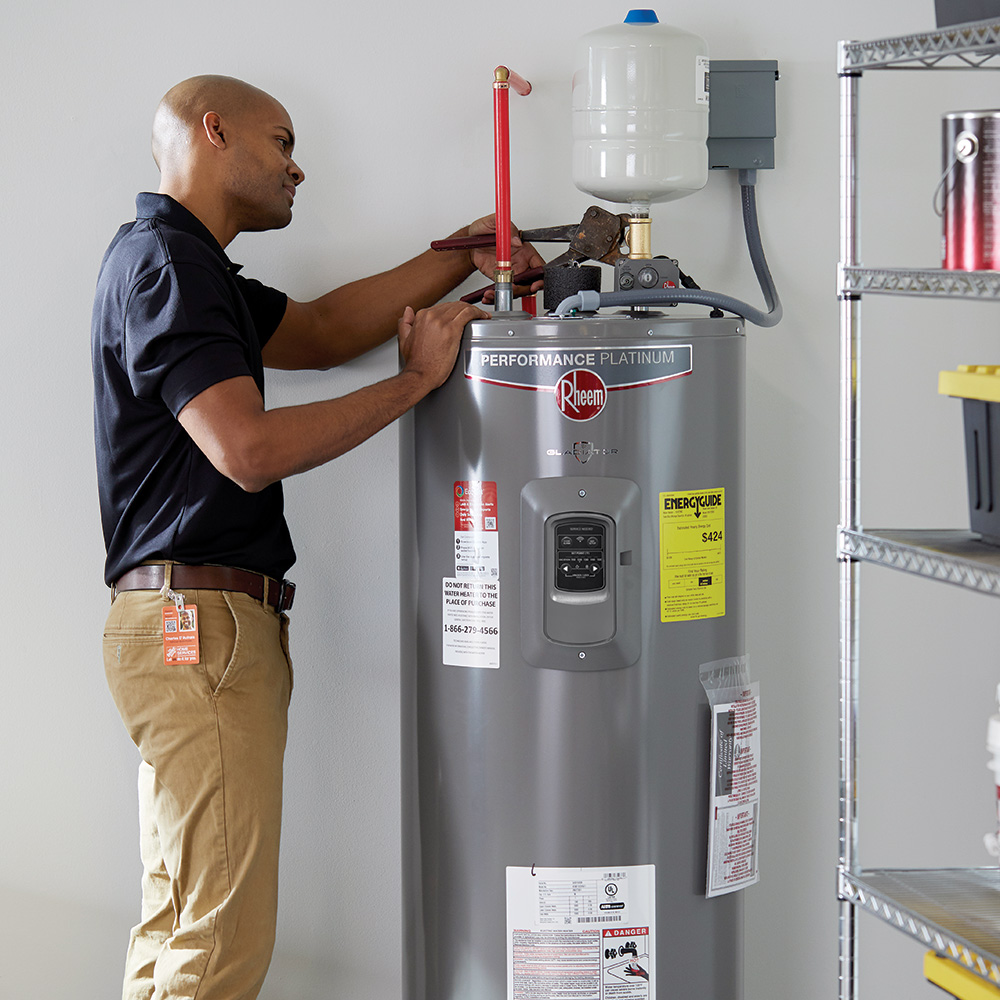Identifying And Solving Regular Water Heater Difficulties
Identifying And Solving Regular Water Heater Difficulties
Blog Article
They are making several good pointers on the subject of Water Heaters Problems in general in this article directly below.

Think of starting your day without your regular hot shower. That currently sets a poor tone for the rest of your day.
Every home needs a reliable hot water heater, but just a couple of know exactly how to manage one. One simple means to keep your water heater in top form is to check for faults consistently and also fix them as soon as they appear.
Remember to shut off your hot water heater before sniffing around for faults. These are the hot water heater faults you are most likely to come across.
Water too warm or too cold
Every hot water heater has a thermostat that identifies just how hot the water obtains. If the water coming into your house is too warm regardless of establishing a practical optimum temperature level, your thermostat could be malfunctioning.
On the other hand, also cold water might result from a fallen short thermostat, a broken circuit, or inappropriate gas flow. As an example, if you utilize a gas hot water heater with a busted pilot burner, you would obtain cold water, even if the thermostat is in ideal condition. For electrical heating systems, a blown fuse may be the wrongdoer.
Not enough hot water
Hot water heater been available in many dimensions, depending on your hot water needs. If you lack hot water prior to everyone has actually had a bath, your water heater is as well small for your family size. You must think about mounting a larger water heater storage tank or choosing a tankless water heater, which takes up less area and is extra resilient.
Unusual noises
There go to least 5 type of sounds you can speak with a hot water heater, but one of the most usual interpretation is that it's time for the water heater to retire.
To start with, you must recognize with the normal appears a water heater makes. An electric heating system may sound various from a gas-powered one.
Popping or banging audios typically imply there is a piece of debris in your storage tanks, and it's time to cleanse it out. On the other hand, whistling or hissing audios may merely be your valves letting some pressure off.
Water leaks
Leaks could come from pipes, water connections, valves, or in the worst-case circumstance, the tank itself. Gradually, water will certainly wear away the container, and discover its escape. If this takes place, you need to change your water heater asap.
Nevertheless, prior to your modification your entire container, be sure that all pipelines remain in location which each valve functions flawlessly. If you still require help determining a leak, call your plumber.
Rust-colored water
Rust-colored water implies among your water heater parts is corroded. Maybe the anode pole, or the tank itself. Your plumber will certainly have the ability to identify which it is.
Lukewarm water
Despite just how high you set the thermostat, you won't obtain any kind of warm water out of a heater well past its prime. A water heater's effectiveness may lower with time.
You will certainly also obtain warm water if your pipes have a cross link. This suggests that when you activate a faucet, warm water from the heater streams in alongside regular, cold water. A cross connection is very easy to spot. If your warm water taps still follow shutting the hot water heater valves, you have a cross link.
Discoloured Water
Corrosion is a major root cause of filthy or discoloured water. Corrosion within the water container or a stopping working anode pole might cause this discolouration. The anode rod protects the storage tank from rusting on the within as well as need to be inspected annual. Without a rod or an effectively functioning anode rod, the warm water rapidly rusts inside the container. Call a professional water heater service technician to establish if changing the anode pole will take care of the issue; if not, replace your water heater.
Conclusion
Preferably, your hot water heater can last 10 years prior to you need a modification. However, after the 10-year mark, you might experience any one of these mistakes more frequently. At this point, you should include a brand-new water heater to your budget plan.
How To Troubleshoot 3 Common Water Heater Problems in Twin Cities
The Water Heater Is Leaking
A leaky cold water inlet valve A loose pipe fitting A leaky temperature and pressure relief valve A corroded anode rod A cracked tank Turn Off Your Water Heater:
Shut off your gas water heater by turning the gas valve on the unit to the “OFF” position. Shut off your electric water by switching its power off at your electrical panel. Look for a two-pole breaker labeled “water heater” and turn it to the “OFF” position. Move the ball valve connected to the water heater to be perpendicular to the piping at a 90° angle. Look for the Leak:
Depending on whether the water is coming from the tank's top or bottom, you’ll want to look for the leak in different locations.
If the leak comes from the top of the tank, carefully look for water escaping from the cold water inlet valve or loose pipe fittings. Rusted hot and cold water valves can have loose connections with the tank, with water leaking out of them.
https://mspplumbingheatingair.com/blog/how-to-troubleshoot-3-common-water-heater-problems
As a passionate reader about Water Heaters Problems, I thought sharing that piece was worth the trouble. Sharing is nice. You never know, you may just be helping someone out. Kudos for your time. Kindly come by our site back soon.
Urgent fix? Dial. Report this page